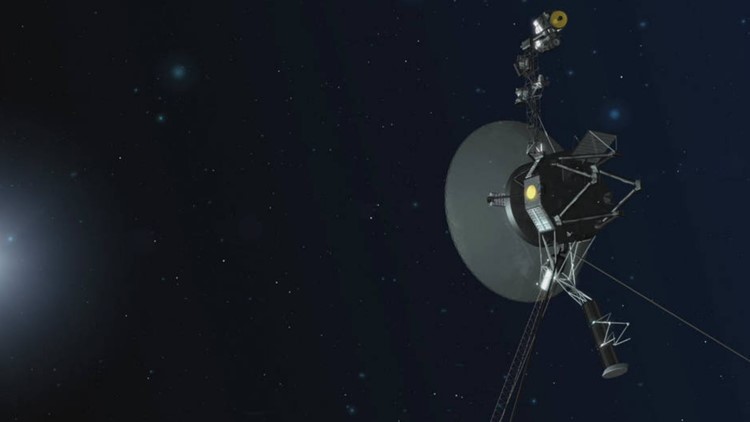WASHINGTON — NASA has finally heard back from Voyager 1 again in a way that makes sense.
Voyager 1, the most distant spacecraft in human history, had stopped sending usable data back to space engineers about five months ago. Flight controllers traced the blank communication to a bad computer chip and rearranged the spacecraft’s coding to work around the trouble.
That all changed on April 20, when NASA's Jet Propulsion Laboratory in Southern California declared success after receiving good engineering updates late last week. The team is still working to restore transmission of the science data.
It takes 22 1/2 hours to send a signal to Voyager 1, more than 15 billion miles (24 billion kilometers) away in interstellar space. The signal travel time is double that for a round trip.
Contact was never lost, rather it was like making a phone call where you can’t hear the person on the other end, a JPL spokeswoman said Tuesday.
The 46-year-old spacecraft sits some 15 billion miles away from Earth, in the depths of interstellar space. Voyager 1 and its twin spacecraft, Voyager 2, were launched within months of each other during the summer of 1977, according to NASA.
Originally, the spacecrafts were sent to study Jupiter and Saturn.
In 2012, Voyager 1 marked a historic entry into the space between stars, known as interstellar space. Six years later, its twin spacecraft arrived at the same point.
The twin Voyager spacecrafts are the longest-running and most distant spacecrafts in history, according to NASA.



